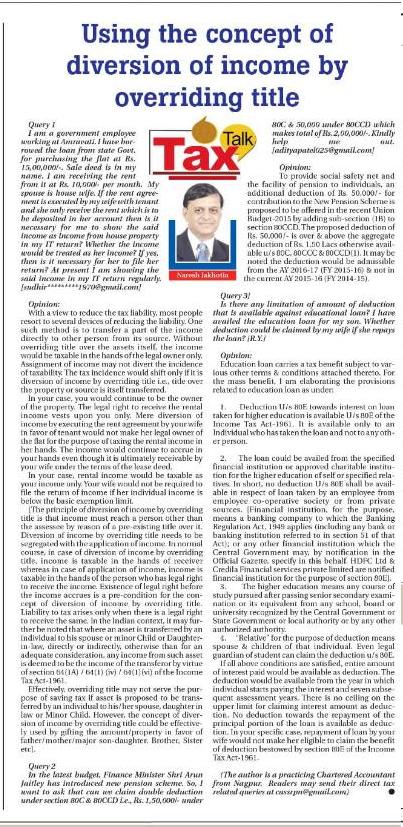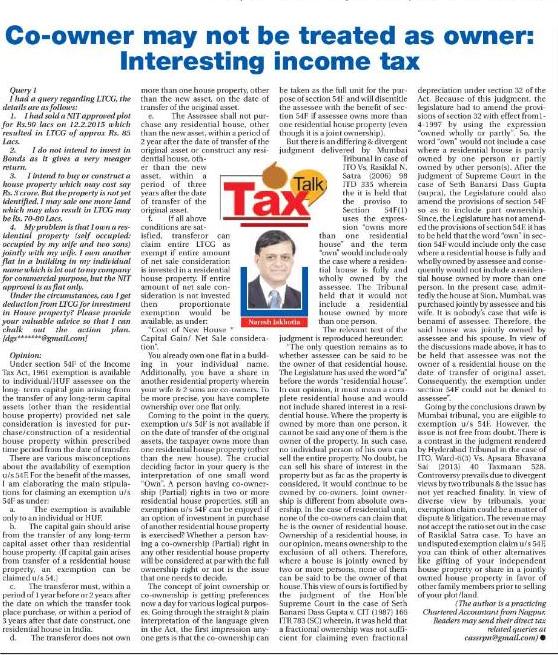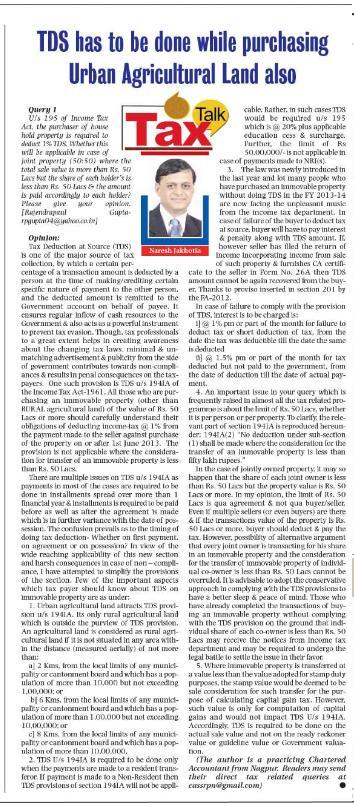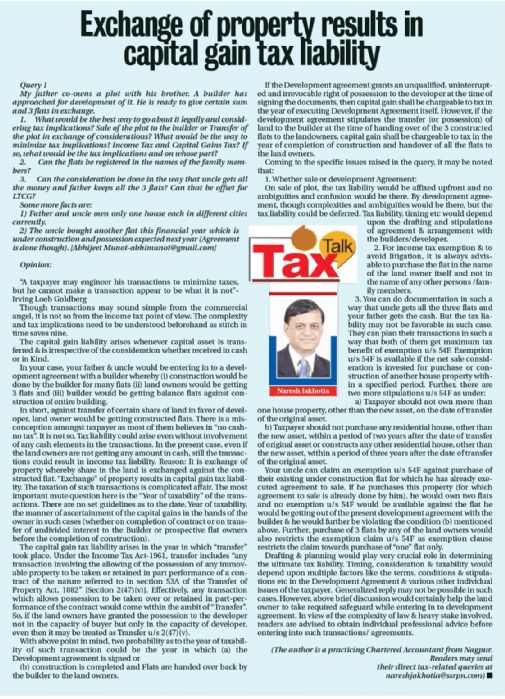Article Details
| Capital gain exemption if Construction is done on the plot owned by spouse |
|
~~TAX TALK-09.05.2016-THE HITAVADA
TAX TALK
CA. NARESH JAKHOTIA Chartered Accountant
Query 1] A friend of mine, now settled in Karnataka, owns a flat in Nagpur and is free from encumbrances. His wife is thinking of constructing an independent house on the plot purchased by her 3 decades ago in Karnataka. My questions, on behalf of my friend, are a. Can my friend gift to his wife the sale proceeds of the flat, after paying LTCG? b. What are the options available to my friend for payment of minimum LTCG? c. Sir, the sale proceeds of the flat is the only source of funds would be available for them to construct a house in Karnataka. Please suggest. [Vishwanathan, Nagpur-ravi.asmita@gmail.com] Opinion: A good friend is a connection to life, a tie to the past, a road to the future, the key to sanity in a totally insane world- Lois Wyse
1. If your friend sale the house property then the capital gain tax liability would accrue in his hands. Subsequent gift of the sale proceeds to wife and thereafter investment by her in the house property would not result in saving long term capital gain tax. The tax liability is affixed at the time of sale itself. 2. Your friend can plan the transactions in any of the following ways so as to take the optimum benefit of exemption available under the Income Tax Act-1961: The above views are backed by interpretation of exemption provision & few judicial pronouncements. However, though any of the options elaborated above could be exercised by your friend, in my considered opinion, option (b) would be better and would be devoid of any litigation and ambiguities because of following reasons: In the option (b), no such possibility of litigation and ambiguities exists. So, in my opinion, assessee should prefer option (b) mentioned above for saving long term capital gain tax.
Query 2] I am a lecturer in college and availed home loan of Rs. 15 Lacs. The interest charged by the bank for FY 2015-16 is Rs. 1,53,000/ and repayment installment paid is Rs. 16,400/. My query is whether I and my wife who is school teacher can share the benefit of interest rebate under sec 24b. Pl clarify. [K.G. Ahuja- bmnagp3908@centralbank.co.in] Opinion: Ownership in a house property is one of the first & foremost vital pre-condition for claiming deduction towards Interest on housing loan u/s 24(b) & towards Principal repayment u/s 80C of the Income Tax Act -1961. Second pre-condition is the availment of loan for house property. Without ownership in the house property, no right would emanate for deduction. If both the conditions are satisfied, then only deduction u/s 24(b) & u/s 80C would be admissible.
[The author is a practicing Chartered Accountant from Nagpur. Readers may send their direct tax related queries at SSRPN & Co 10, Laxmi Vyankatesh Apartment C.A. Road, Telephone Exch. Square Nagpur-440008 or email it at nareshjakhotia@ssrpn.com] |
 |




.png)




